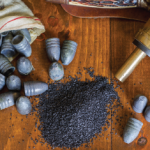The Phone Call
A phone call in the middle of the night can rattle one’s nerves. The rush of adrenaline sets the heart pounding as our ears brace for what we are about to hear next. A distress call from an elderly parent or a child away at college? Is everyone safe? Or may this call be an ill-timed wrong number? If this call is happening in the early hours of the first Monday morning in October, and you detect a pleasant Swedish-accented voice on the other end of the line, listen carefully because this may not be the guy from IKEA calling about your missing piece of hardware. In fact, the caller may be a representative of the famed Karolinska Institute in Stockholm, Sweden, informing you of your selection as this year’s Nobel laureate. Congratulations! If so, please don’t pull a Bob Dylan by forwarding the call to voice mail.1
The final vote to select the annual winner in each category takes place just minutes before the call is made at 11:15 a.m. Stockholm time, so an intensive, yet covert, effort is required to find the best number for the permanent secretary of the Royal Swedish Academy of Sciences, currently Göran Hansson, PhD, to call. Because the winners’ names are released to the media at noon Stockholm time, there have been times when the noise of television news vans assembling their satellite gear outside a prize winner’s house, awakening a deep sleeper, proved to be the way the winner was notified.2 Surprise, you are not dreaming!
Although it has been nearly 70 years since a rheumatologist was awarded a Nobel prize—the late Philip Hench, MD, of the Mayo Clinic in Rochester, Minn., for his pioneering work to identify our first effective immunosuppressive, corticosteroids—the hope remains that our luck will change come October. After all, if the Cubs can win …
Speaking of Chicago, hearing a Midwest twang on a late summer phone call may portend another joyous event: You have been selected to receive a MacArthur Foundation fellowship. Called the genius award by the media, the fellowship is bestowed on individuals for their “originality, insight and potential” in the sciences or the humanities.3
For prize winners, the widespread recognition along with the accompanying, substantial monetary award are testaments to their wonderfully creative and highly productive careers.
However, prizes are a recognition of what has already been accomplished. They are insufficient to support their research enterprise for the long term. Staff, supplies and space require ample ongoing financial support. Yes, it’s money that keeps the lights lit and the centrifuges spinning. For many decades that support has come primarily from the National Institutes of Health (NIH).

